Why We Changed a Core Value
Last spring, our CEO, Andrea Goulet (who’s also my life-partner), brought a Twitter exchange to my attention. Before I talk about the exchange more, I’d like to you to read the most relevant tweets first:
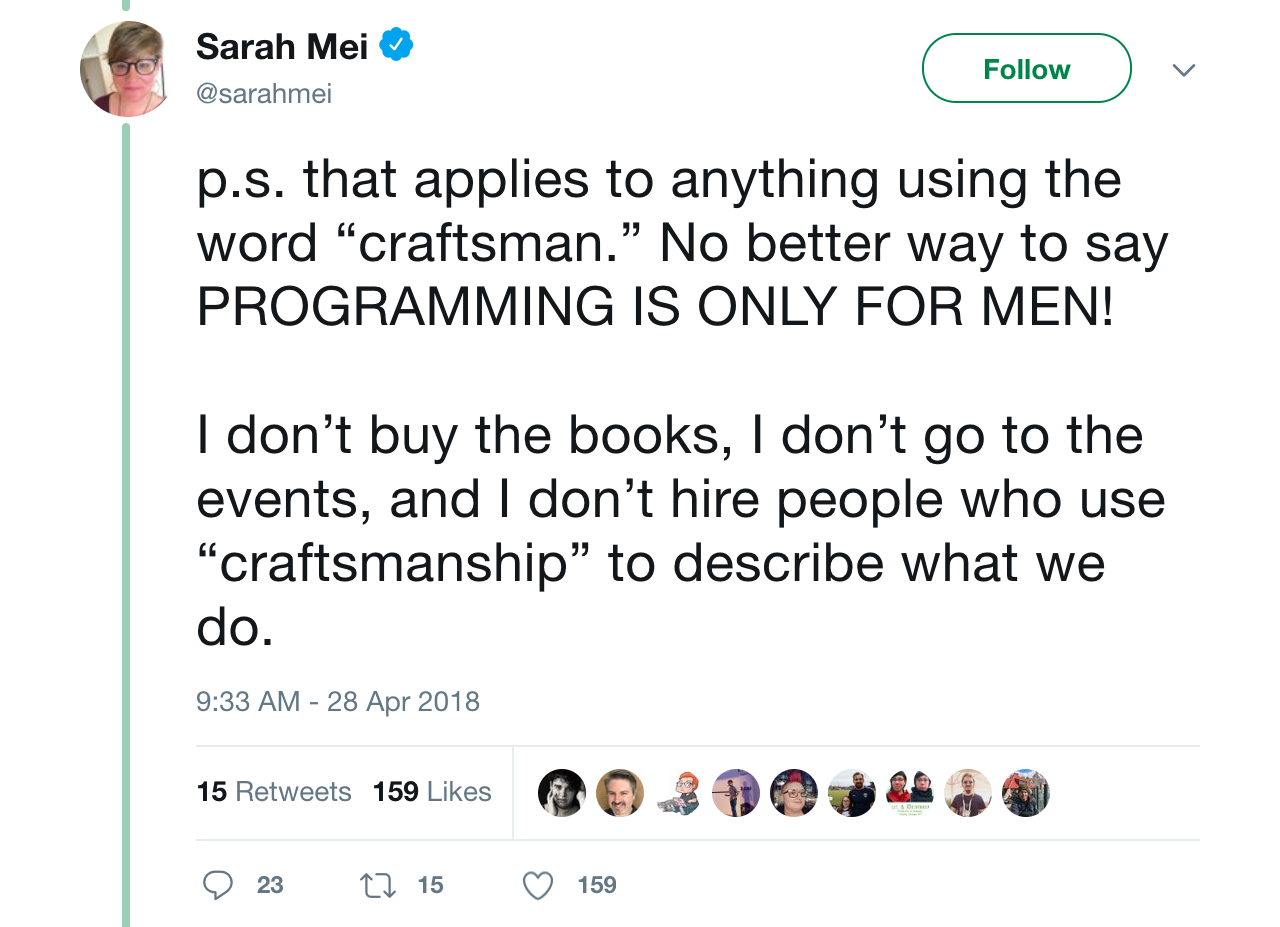 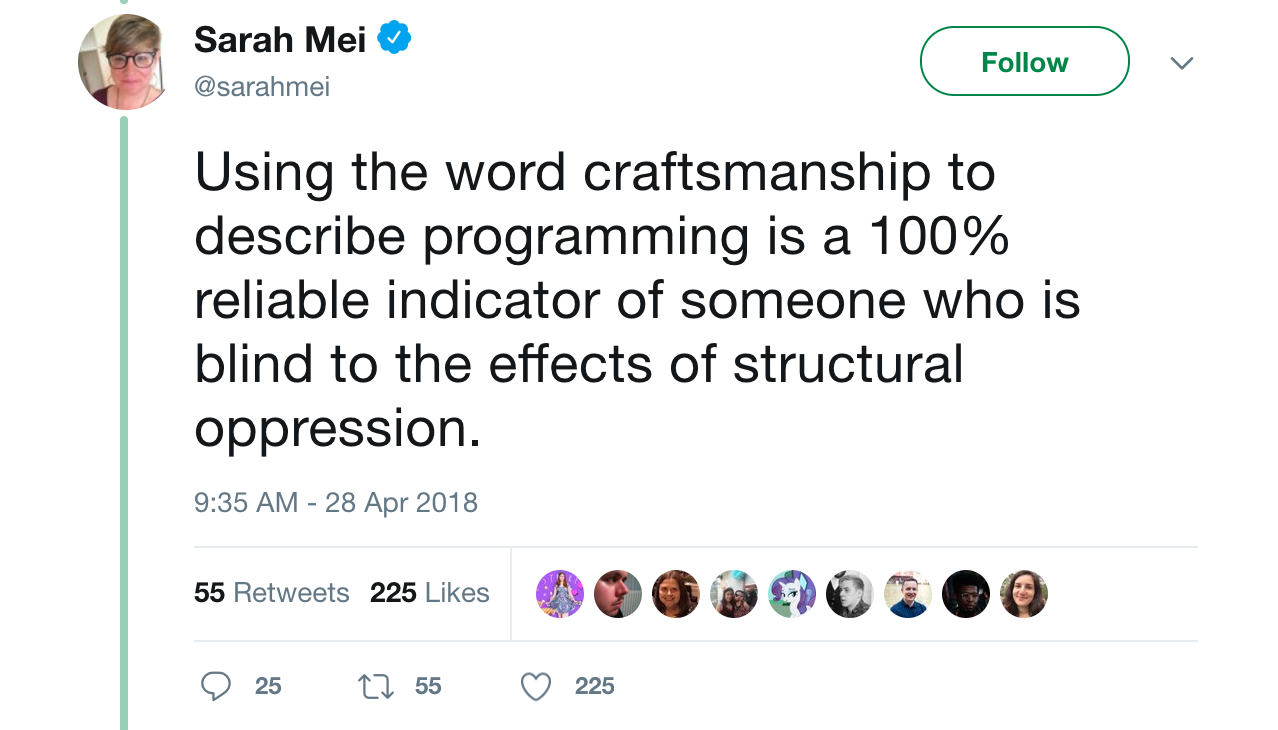 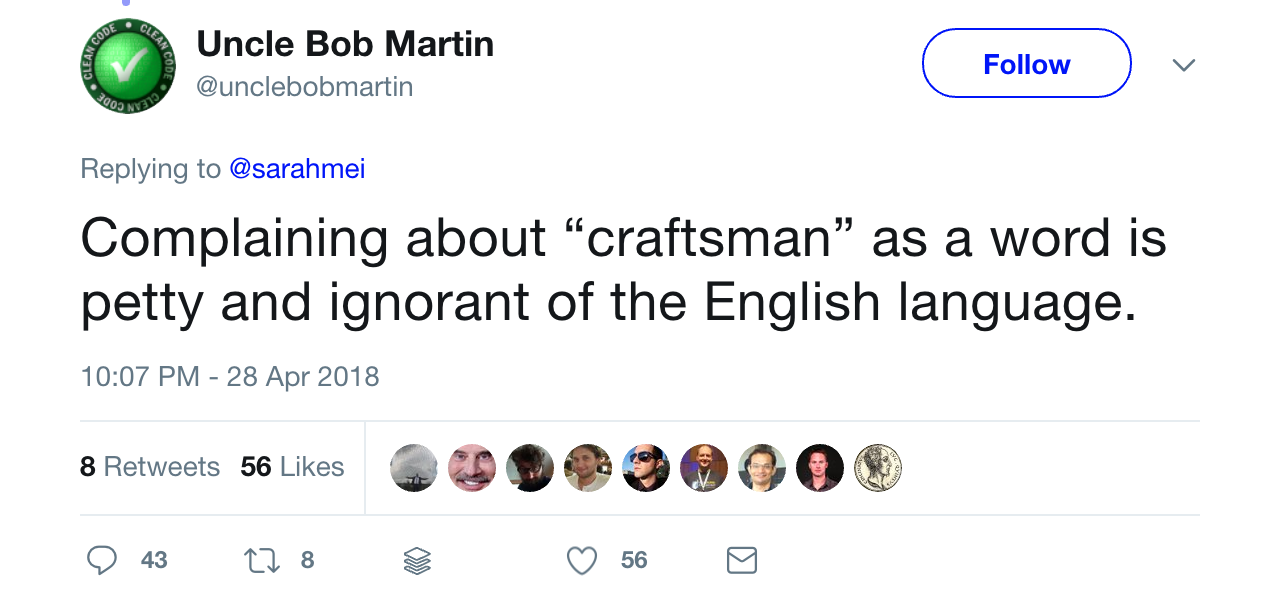Okay. So what have we just read?
In response to a recently released book title, Sarah Mei tweeted about her objection to the use of the word “craftsman” in the software industry to describe our practices. In response, Robert “Uncle Bob” Martin replied by suggesting that she’s ignorant of the English language.
After seeing this conversation play out, and re-reading through it in detail, I had a lot to think about. Five years ago, we’d sat down and written out our core values for Corgibytes. One of the values we chose was “Craftsmanship In Context.” Were we inadvertently contributing to sexism in the software industry with our chosen wording?
I found the argument made by Sarah very compelling, and I was really surprised to see Uncle Bob’s responses. After reading them, I was nervous that if I continued to use “craftsmanship” that others would think I silently agreed with the approach and content of Uncle Bob’s messages. I realized that I didn’t want myself or Corgibytes to be associated with this negativity or gender bias. I felt like a very clear dividing line had been drawn. On one side, there’s the rampant sexism that’s prevalent in the software industry (Uber and GitHub come to mind as prominent examples) and those that don’t view this sexism as problematic. On the other side, there are those that are trying to correct the imbalance.
We’ve tried very hard to place Corgibytes on the side of correcting the imbalance, and Andrea’s efforts have been instrumental. Without her energy and insistence on including under-represented groups in our candidate pool, we’d likely be another team of mostly white males. Some of the policies she’s put in place include empathy and implicit bias training for all team members, transparent salaries to ensure equal pay for all genders, reviewing job descriptions for gender bias before they’re published, and advertising job posts on boards that target under-represented groups.
These efforts have led to some interesting results. Of the five people on our leadership team, I’m currently the only man, and we’ve maintained gender parity on our technical team for the last 3 years. Of course, there are always places where we could do better, which brings us back to our core values.
When we developed our value of “Craftsmanship In Context,” the intention was to encourage developers to consider the business context of the changes that they are making and to use that knowledge to determine the appropriate level of craftwork that should go into creating the finished product. For some projects, a quick and dirty, untested prototype is the most appropriate solution to build. In other contexts, such an approach would be considered reckless, and instead solid code and a well-balanced pyramid of automated tests are appropriate.
So, with that history in mind, I opened up a discussion internally, seeking comment from our team about what we should change “craftsmanship” to in our core value “Craftsmanship in Context”:
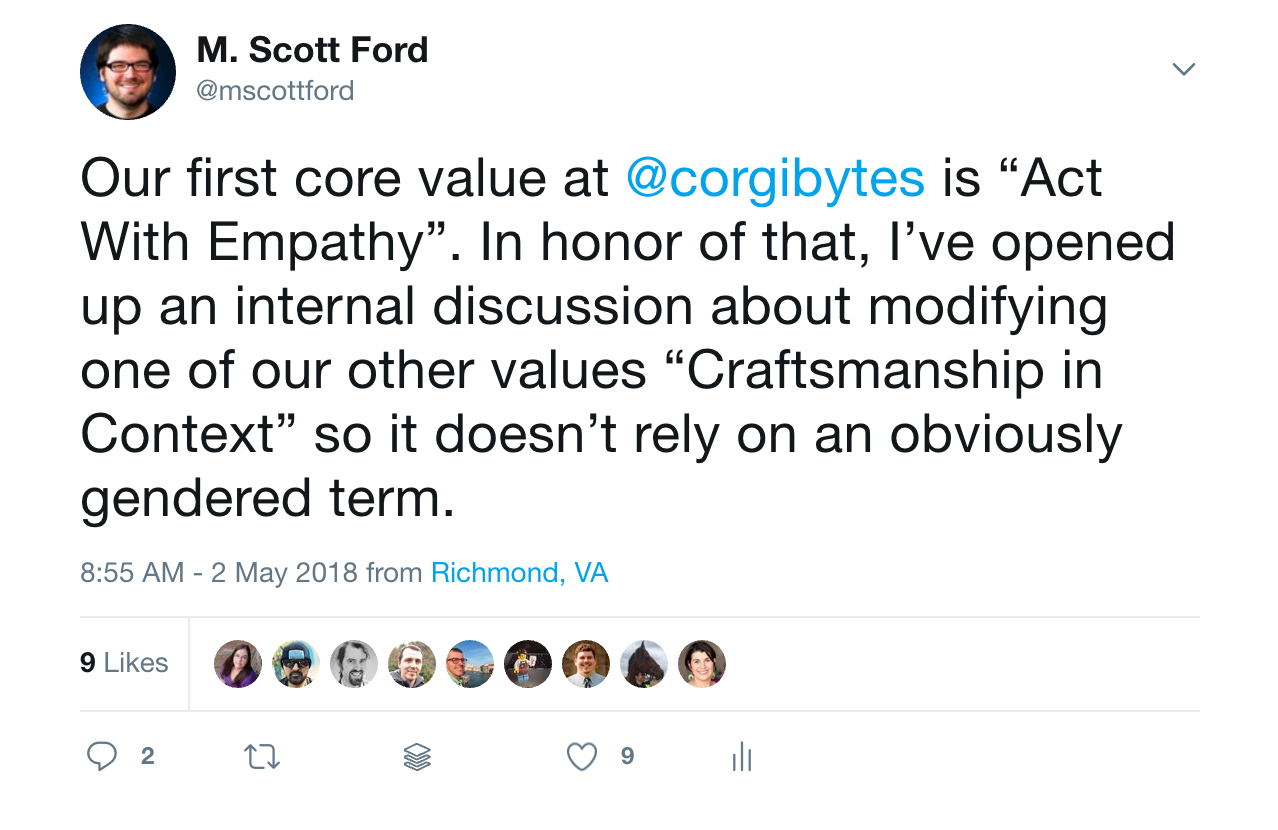My tweet caught Andrea’s attention while she was attending a conference and she chimed in with her suggestion:
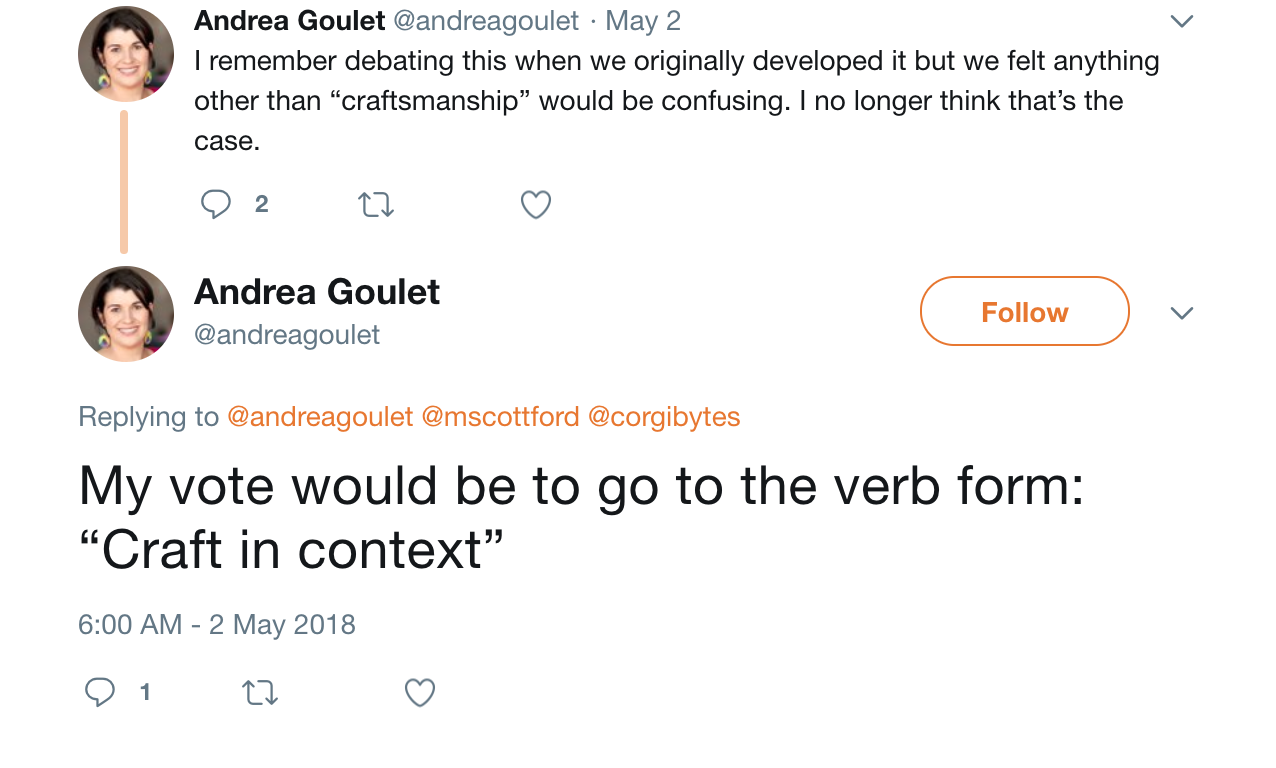We didn’t come up with any better alternatives as part of our internal discussion, so “Craft in Context” is what we ultimately decided on.
We feel that this revised core value still conveys the same meaning as our original. The only real difference is that we’ve switched from the noun “craftsmanship” to the verb “craft.” We still get to lean on the original root wording while avoiding an obviously gendered term.
As I reflect back, I’m really happy with how this process turned out, and I’m glad that we’ve made the change that we did. Revisions to our core values are rare as they act as our guiding principles every day. But it’s important to remember that core values are not immutable. As we finesse our understanding of our industry and gain new insights, it’s important to regularly reflect back to make sure that what we’ve set as our highest ideals remains accurate.
What are your thoughts? Has your team grappled with similar issues? How have you handled them?
Note: I encourage a discussion about this topic in the comments below. That said, I want to be clear that only respectful discussion will be tolerated. When criticizing someone’s ideas, be sure to make your comments about the idea and not the individual. Any comments that violate this spirit will be deleted.
Want to be alerted when we publish future blogs? Sign up for our newsletter!